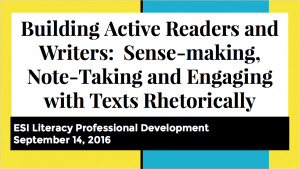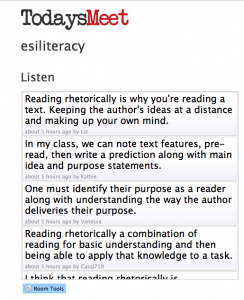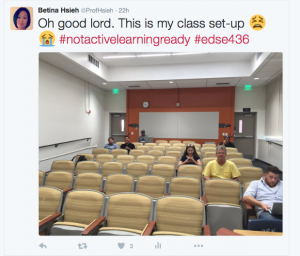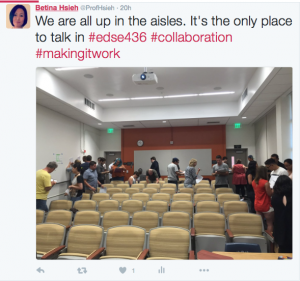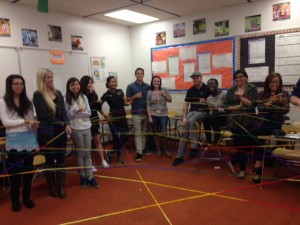It’s been a really interesting week.
Last week, when I wrote, I was on the brink of exhaustion and frustrated with myself for lack of self-care, struggling with prioritizing time for all of the priorities in my life. Frankly, for people who follow this blog or who know me in person, this is nothing new. My life has been variations on this theme pretty much since my mother passed away, which will be twenty years ago this Tuesday. (Before that, she was good at making sure that I didn’t overcommit–something that frustrated me to no end, but in retrospect, I can see the intention behind her trying to make sure I had time to eat and rest instead of doing the 8-10 different activities I wanted to pursue.)
Anyways, after last week’s blog post, and because I’m really committed to my new year’s resolution of self-care, I decided that I needed to flip the script a bit. I went to get a pedicure and largely took the weekend off (including a much needed Sunday afternoon nap).
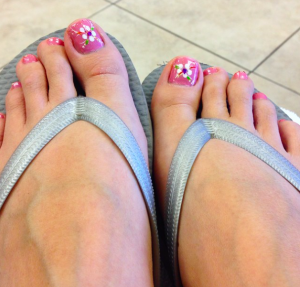
Pretty toes and an hour off can do wonders in changing one’s perspective
And, just that simple shift actually shifted my perspective in other ways this week. Thursday, a co-authored manuscript of mine was rejected after a recent submission. My co-author was pretty upset and, honestly, it has been a rough streak in terms of recent submissions, but I found myself strangely at peace. I found myself thinking that, although rejection is never pleasant, I really enjoy writing (this after spending 4 hours revising another manuscript the day prior so really, if I were not going to like writing it would be on Thursday), and I would write (perhaps for publication, perhaps not), even if I was not an academic. And then, I thought, what would be the worst case scenario? Not being granted tenure? Sure, that would be terrible, given that I pretty much feel like I was born to be an academic and I LOVE MY JOB, but you know what? I love teaching too and I’d be happy for the chance to return to a middle school classroom. Stressing about this rejection wasn’t going to change the editors’ decision nor was it going to make an already long day any easier. So, I let it go and I focused on being present to how blessed I am to be doing this work that I love, in spite of what the future might (or might not bring).
Later that evening, as I was teaching my class (this lecture is one during which I am always pressed for time because I try to cram a semester’s worth of literacy theory into a single lecture), a student made a comment that necessitated discussion, taking away precious time that was already scarce. This, on top of the fact that our jigsaw reading activity had taken more time than planned started to make me stressed. I ended up rushing the lecture, to the disappointment of some students, but for the benefit of the overall class. Normally, I would still be beating myself up for this, almost 24 hours later. But, in uncharacteristic acceptance, I realized that I made the choice that had to be made and that the semester still has 13 weeks ahead to help cover some other foundational topics. I also realized that I can’t please every student every session, which is again a deviation from my people-pleasing script, but it’s a conclusion that after 15 years in teaching, I need to come to accept.
And, then there was today. I woke up, after yesterday’s grueling back-to-back lecture day, hoping to get a lot accomplished (or at least to get in a nap), with only a couple of volunteer duties on the calendar for my son’s school. But, between discussion board post responses, feedback on exit slips, and the volunteer duties which took MUCH longer than expected, I ended up not having accomplished a whole lot (and certainly not having taken a nap) by 2:15pm. And, I found myself in a conundrum since I was at school when my son was getting out of school–should I sneak off campus, giving me a few more hours to finish the work I needed to d0, or should I take my son home early? Luckily, my friend Andrea was with me, and said, “Why don’t you ask Nate [my son] what he wants to do?” I thought for a second about the lecture I had to record and the responses I still had left and the 2 meetings I had scheduled over the weekend that I wasn’t really prepared for and on and on and on and I realized that, it will all get done, so maybe I should see if my son wanted to spend the afternoon with me or with his friends at daycare.
I went over to Nate’s classroom and asked if he’d rather come home early or go to daycare. He looked at me with a bit of a puzzled look (that basically translated into, “Seriously, Mom? I can’t believe you’re asking me this.”) and said simply, “I’d rather go home early, thanks.” And that was that. Instead of working, we spent the next two hours hanging out together, getting some errands done and just being around each other, prompting him to say, “Mom, you really are the best mom ever. I’m so glad that you’re my mom.”
Those words brought me back to my own childhood and afternoons spent at daycare when my mom had to work. I remembered how much I loved just spending time with her and how, now that she’s been gone for so long, all I would like is the opportunity to tell her that she was the best mom ever and that I am glad that she was my mom. So, this weekend, when I go to leave flowers at my mother’s gravesite, I will do so in peace, knowing that in deviating from the script of overachievement and always having to get my work done first, I am honoring myself and my mom. I’ve found, for the both of us, peace and relief from trying so hard to do it all.





